URBAN WATERWAYS
Budget cuts dampen Cape Town’s river rehabilitation, with key projects delayed for 10 years
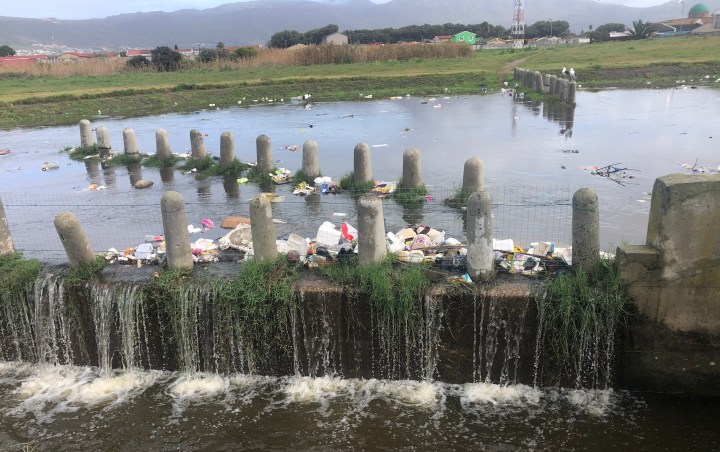
Cape Town’s urban landscape has been transforming as the city rehabilitates its waterways through its Liveable Urban Waterways programme. But recent decisions have prompted 10-year delays in key river projects, despite millions already spent on design and technical planning.
Many of Cape Town’s inland waterways are in poor condition from years of development, changes in land use and pollution in the catchment areas.
Now, the City of Cape Town has delayed the implementation of four projects in its Liveable Urban Waterways (LUW) programme, which aimed to rehabilitate these waterways.
In the LUW programme, the city states that creating liveable waterways is necessary to build adaptability to climate change, improve ecosystem health, create safe and useable spaces next to the waterways and improve water quality. “All of these are key to Cape Town’s goal of becoming a water-sensitive city by 2040.”
However, according to a presentation to the Mayoral Advisory Committee on Water Quality in Wetlands and Waterways on Friday, 15 March, capital expenditure budgets for four of the six projects in the programme have been delayed until 2033/34.
More than R13-million has already been spent on design and technical planning, and the capital had been due for implementation over the next three years.
The four delayed projects are at Keysers River, Grootboschkloof River, Westlake River and Spaanschemat River — all of which are within the Sand River Catchment in the southern suburbs of Cape Town.
The two projects going ahead are at the Sand/Langvlei Canal and the Vygekraal River.
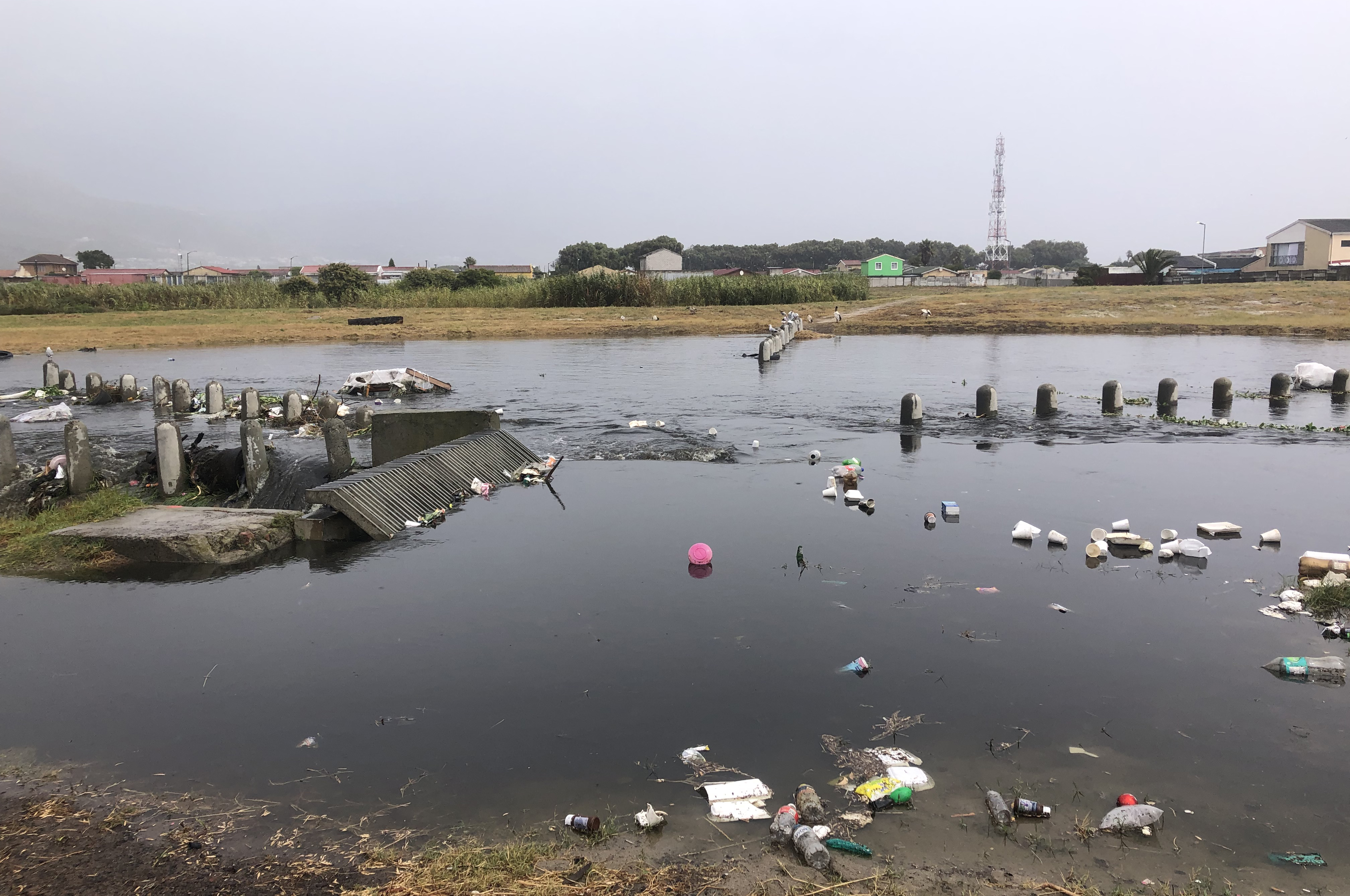
The Sand River Catchment on 25 May 2023, after particularly heavy rains in the Cape. (Photo: Supplied)
Budget cuts and project delays
The City’s Mayoral Committee member for water and sanitation, Zahid Badroodien, said the delays were primarily due to “reprioritisation of the capital budget in accordance with the city’s current borrowing capability and affordability constraints”.
Finance Minister Enoch Godongwana announced nationwide cuts to municipal budgets in his February budget speech.
Badroodien said the city revisited budgets annually, based on updated priorities and needs.
“Prioritisation decisions, inter alia, included the delay of projects not at the execution stage which were either rationalised or deferred. Furthermore, the latest cost estimates for the LUW projects significantly exceeded initial cost projections,” he said.
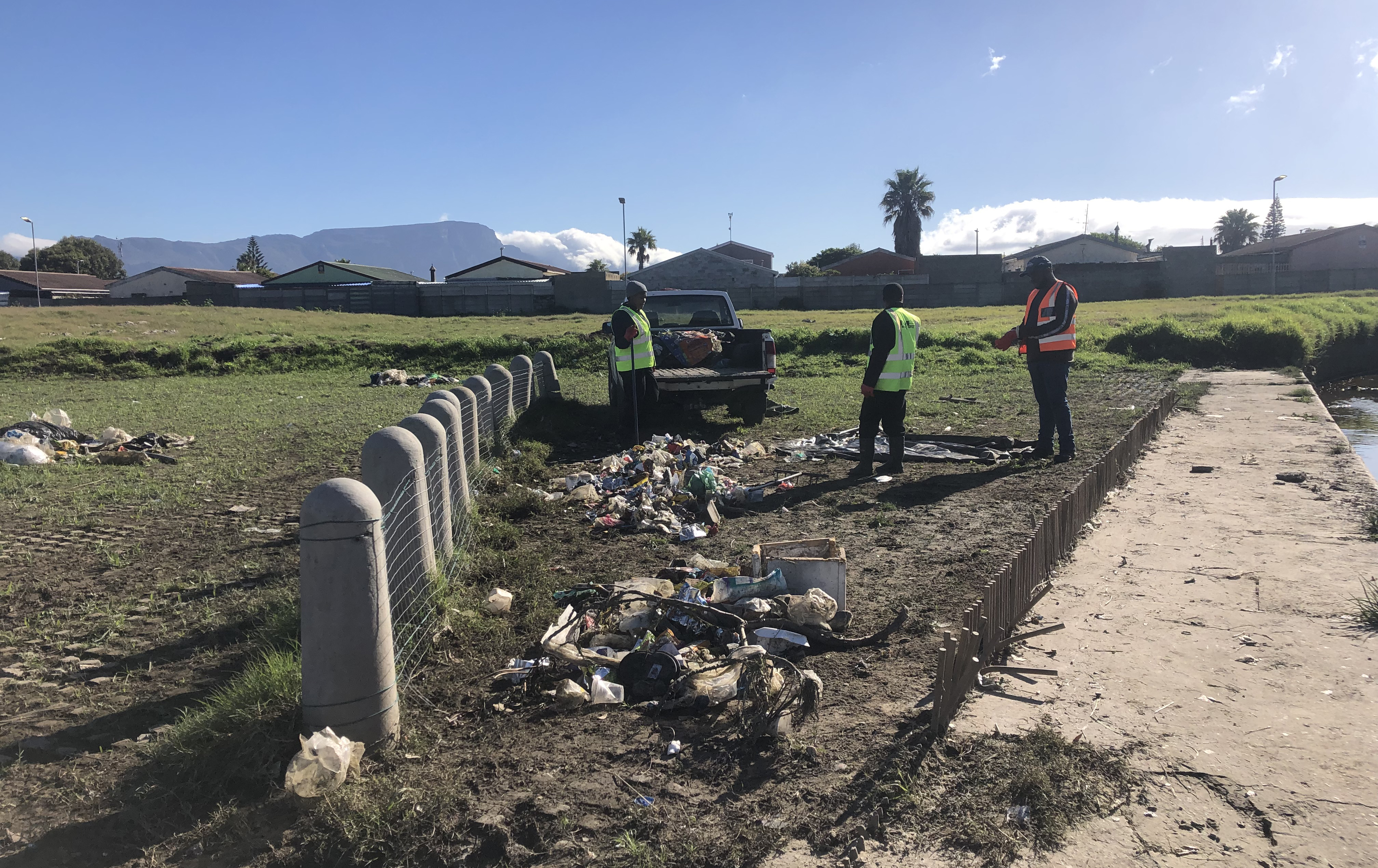
Capex budgets for four of the six projects of the Liveable Urban Waterways Programme have been pushed out to 2033/34, meaning a 10-year delay before these projects are put on the table again. (Photo: Supplied)
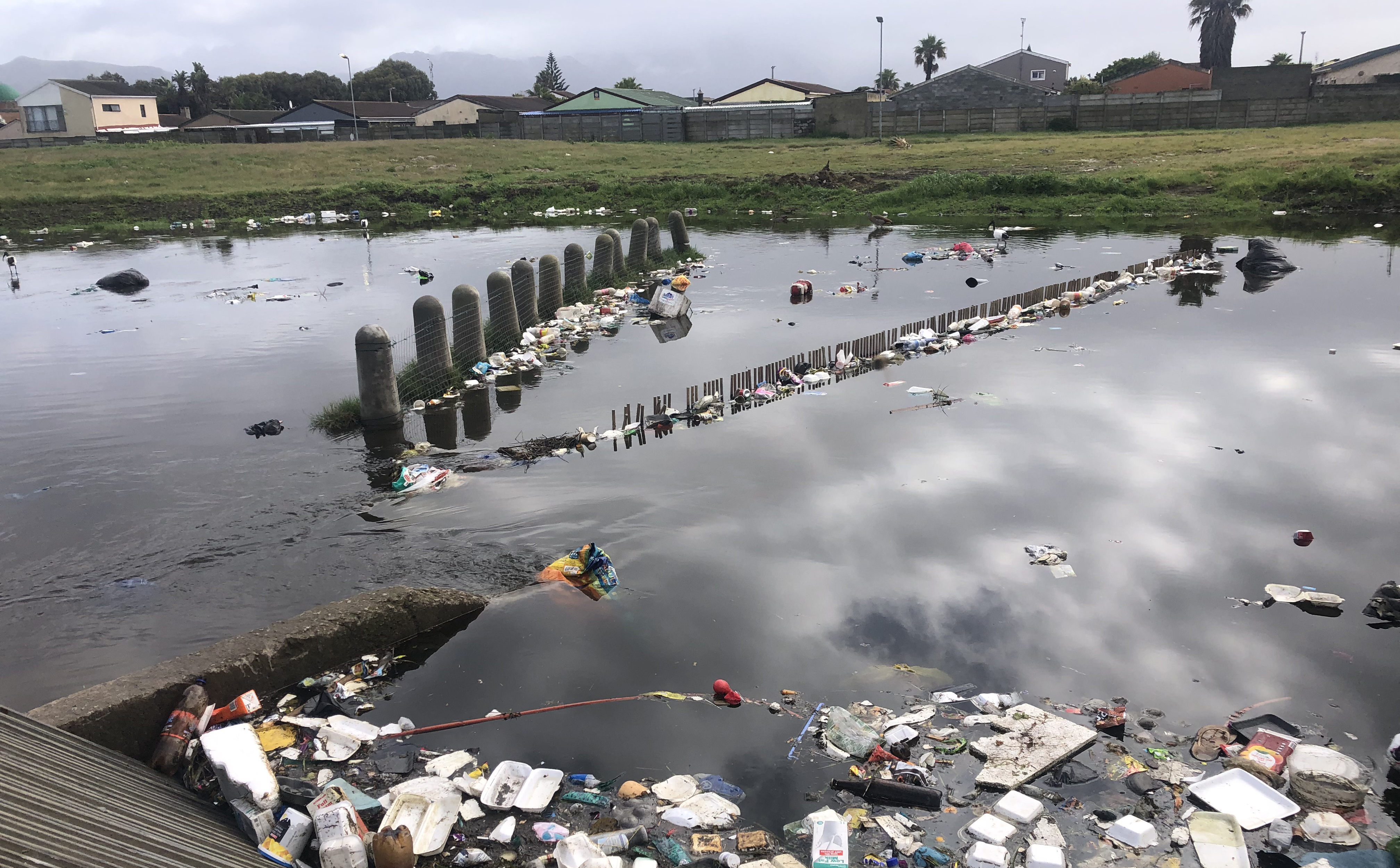
The City of Cape Town has moved to delay the implementation of several key river projects under its Liveable Urban Waterways Programme that aimed to rehabilitate waterways across Cape Town. (Photo: Supplied)
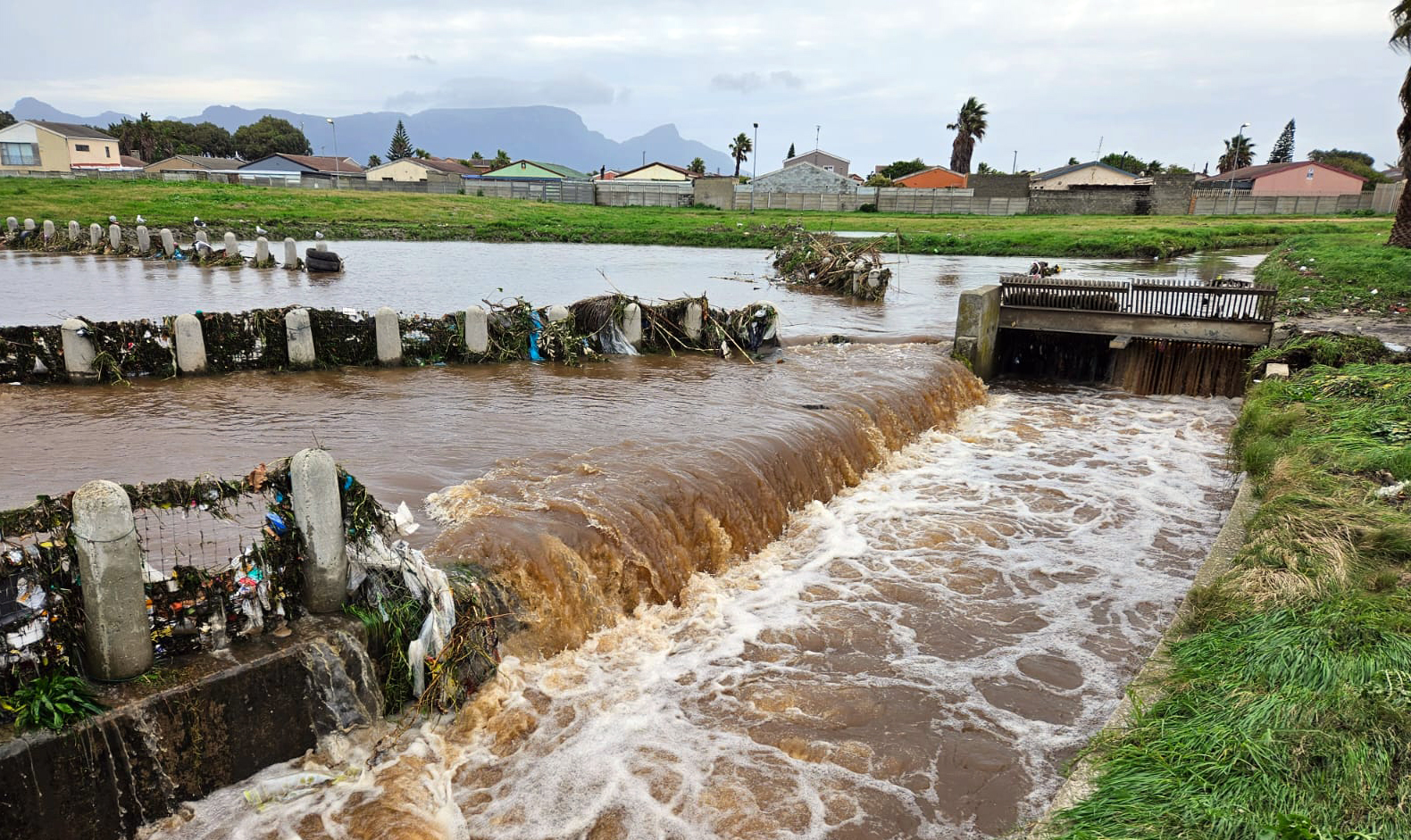
The predominant issues plaguing river catchments across Cape Town stem largely from human activity, namely pollution, illegal dumping, urbanisation, and harm to sewage infrastructure. (Photo: Supplied)
Impact on the environment and residents
David Bristow — the chairperson of the Zandvlei Trust and a member of the Zandvlei Protected Area Advisory Committee and the Zandvlei Catchment Forum — told Daily Maverick that the LUW programme had been proceeding for some years.
“It is a pity that budgets for cleaning up our rivers and wetlands have been slashed now just when things were getting going on improving them. On the other hand, we now have a mayoral team that is focused on cleaning up our natural waterways and wetlands, so I see it as a setback rather than the disaster it might otherwise [previously] have been.”
Bristow said the environment was at or near the bottom of political agendas, so the cuts were inevitable.
“Cape Town has something like 400km of concreted canals that once were rivers, and this is partly what the LUW programme is trying to address. But currently, the biggest single cause of wetland degradation is sewage — partly because of load shedding and the breakdowns it causes in the city’s pump station network,” he said.
According to Bristow, the two pilot projects that were proceeding focused on the Zandvlei Catchment. They are:
- The creation of a natural pool or biofilter in the lower Sand-Langvlei river system, which has been described as the single biggest contributor of solid waste in the Zandvlei Catchment; and
- The restoration of a section of the Lotus River to showcase what that and other concreted canals could and should look like.
“Except for part of the Westlake River, these catchments flow through what I refer to as the ‘Porsche Belt’ — those very green and affluent areas on the mountain slopes way above the noisome Cape Flats (where I live). But that is also where much of the chemical pollution derives — from the wine farms, Pollsmoor prison and the thousands of households who illegally backwash their swimming pool water into the stormwater system and from there into Zandvlei,” he said.
The biggest challenge for Cape Town, he said, was coping with the influx of mostly poor people into the city over the past three decades.
“It’s a fact that will not go away and has to be dealt with as best as can be. Given that we have hospitals without doctors, doctors without jobs, schools without toilets or teachers, cities without water, and of course that load shedding thing, environmental concerns are the least of some people’s concerns.
“Like fresh air, fresh water becomes a concern only when it runs out. It has once before in Cape Town, and it will again. Rich people will get by, by installing rainwater tanks, well points, and water recycling systems. But, as in any kind of disaster, it’s the poor who will suffer the most,” Bristow said.
A community member from Zandvlei said, “If the projects that were planned don’t go ahead, we have just binned [R13-million] because any project that the government puts off for 10 years means it’s not happening because all of those environmental impact assessments need to get redone because they’re only valid for a certain time.”
‘A short-sighted decision’
Carolynne Franklin, a member of the city’s spatial planning and environment portfolio committee, and a mayoral appointee to the Zandvlei Protected Areas Advisory Committee, said the entire LUW programme was in jeopardy.
Delaying the four projects was a “short-sighted and obstructive desktop decision”, Franklin said.
“The first batch of pilot projects is critical to build the momentum required to scale the LUW programme to all city catchments. We have identified over 50 potential project locations in 11 catchments, but cannot tackle this massive task without first building confidence and expertise and testing approaches through this first batch of projects,” she said.
Franklin said it was not just the Sand/Langvlei rivers that caused major pollution in Zandvlei.
“Flooding in the Sand River Catchment occurs from the Westlake and Keyser river runoff (not the Sand or Langvlei), due to inappropriately managed upstream waterways.
“Ninety-five percent of the pollution and sewage that ran into Zandvlei in 2022/23 came from the Westlake and Keyser rivers (not the Sand or Langvlei). These two issues alone are good enough reasons to ensure the continuation of the LUW programme in the Keyser and Westlake rivers,” she said.
Franklin added that the LUW programme was expected to show a cumulative net benefit of R57,154,000 over 20 years from:
- Water quality improvements;
- Ecological health improvements;
- Improvements in ecosystem services such as slowing down flows and trapping sediments;
- The removal of invasive plants, fixing damaged infrastructure and repairing erosion;
- Reduced flood levels, in some locations by as much as 500mm;
- Improvements in the use of the waterway by communities, including much-needed improvements to social infrastructure in the disadvantaged communities of Westlake Village; and
- Improvements in non-motorised transport routes adjacent to the waterways.
“The R13-million already spent will be wasted if the LUW programme does not proceed. All the design work, community engagement, surveys, etc will have to be redone, at an even greater cost, if this is pushed out to 2034 as per city proposals. Not to mention the cost to the degraded environment and waterways, or the deterioration of the water quality flowing into Zandvlei,” Franklin said.
City’s response and future plans
Councillor Alex Lansdowne, the deputy chairperson of the mayoral advisory committee on water quality in wetlands and waterways, said they had received a presentation on the delayed implementation of select river rehabilitation projects in the LUW programme.
“The committee resolved to engage with the mayor to find solutions to mitigate these delays. A key function of this committee is to advocate and guide the municipality’s efforts to protect and restore urban waterways,” he said.
Badroodien said the LUW programme was continuing even with the project delays.
“With technical assistance supported from an international grant, a number of possible projects are being identified in the Diep/Sand Catchment as well as the Zeekoe Catchment. Further work is under way in the Salt Catchment (the Elsieskraal River),” he said.
Badroodien denied that the millions spent on the projects would go to waste. “Various studies have been undertaken to provide a very important body of knowledge for these rivers and the catchment, and will not be a wasted effort.”
He noted that the LUW programme was more than just projects.
“There are various other workstreams that are proceeding and producing positive results; for example, partnering with research organisations, publication of case studies, awareness of the need for the programme, and improving catchment governance,” he said.
However, the socioeconomic and environmental benefits from the projects would be deferred until the projects were implemented.
“The city will, however, continue with other interventions such as ongoing maintenance (including litter removal, silt management, alien vegetation removal, etc), minor refurbishment … and awareness around dumping of waste programmes, etc.
“The city has numerous programmes and initiatives geared towards climate adaptation, including various river-related projects. LUW is only one of many programmes and the deferral of four projects will not affect the achievement of the broader goals… We are encouraging collective efforts to continue developing the programme, and finding ways of financing the projects,” he said.
Community activist and founder of RethinkTheStink, Caroline Marx, who is on the mayoral advisory committee for water quality, told Daily Maverick: “It is so disappointing that projects aimed at protecting Cape Town’s wetlands are being delayed by overall budget cuts.”
Marx questioned why funding was being taken away from a city with clean audits and a proven track record of delivering mega projects when this funding was needed to protect residents’ health, their right to a safe environment and to comply with national legislation. DM



















 Become an Insider
Become an Insider
Terrible – I believe the city is far more concerned with political grandstanding (like building low cost housing for a tiny few, when in reality we need about 500,000 houses), than prioritising our environment.
Delaying a project for 10years is kicking the can so far down the road, it is basically cancelling the project. Unacceptable.
Also missing from the article though, is how much money are we talking about?
We know we’ve already invested R13m in this, but how much more was needed to complete it? R1m? R10m? R100m?
Without knowing this, it’s difficult to know where exactly to place criticism.
If the national government decides to withdraw funding for such an important program, which concerns the lives and health of a city, then the municipal government should take the lead. What happened to all the money from the water taxes paid during the drought? There must be money in the local government coffers that could be directed in this direction.
What about the first frontier The Liesbeek River?
What about the first frontier The Liesbeek River?
In a 2019 water quality report the then City director said: ” to restore our waterways to a state we can all be proud of, it is arguably even more crucial to foster a culture where Cape Town’s communities feel a sense of collective ownership of, and responsibility towards, the wetlands, rivers and canals in their urban environment, and are aware of their role in properly managing pollution. As such, I hope that this report spurs civic organisations, businesses and communities to join the City in revolutionising the way residents think about the urban water cycle (natural surface water, potable water, sewage and stormwater systems), and to help rehabilitate our rivers.” Many citizen groups have been doing this for decades with their own limited resources and continue to do so despite this budget setback. What they need is firm commitment from the City to acknowledge and support such efforts.